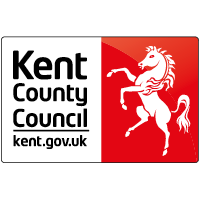Budget Consultation 2025-26
Update 16 October 2024
Thank you so much to everyone who took the time to tell us their views. The Consultation Report is now available in the Documents section on this page.
Your responses will be considered by Councillors at their Cabinet Committee and Cabinet meetings taking place during November 2024 before the budget proposals are finalised and considered for approval by County Council in February 2025.
Update 8 August 2024
This consultation is now closed. Thank you to everyone who took the time to tell us their views. Your responses are now being analysed and a consultation report will be published on this webpage in November.
Every year Kent County Council (KCC) must agree a budget which balances the money we spend on services, with the money we have.
We have been through an extraordinary period in the last few years with the Covid-19 pandemic followed by the significant economic turbulence, arising from international and national circumstances. The demand for and cost of providing services was such that for the first time in 22 years we ended the 2022-23 financial year with a significant overspend of £44.4 million, followed by an overspend of £9.6 million in 2023-24.
The biggest overspends were largely for services for the most vulnerable residents in the areas of adult and children's social care, and home to school transport. These services are continuing to face increasing demand and above inflation cost pressures. We need to manage this within the funding available, which mainly comes from Council Tax and Government grants.
Since 2011, KCC has had to find almost £1 billion in savings and income generation in order to manage spending within the funding available.
The setting of the 2025-26 budget is once again a challenging process. The estimated budget gap is £81 million and with some of the Council's reserves having been used in recent years’ budgets, further tough choices will need to be considered.
Even with Council Tax increases we would have to find further savings in 2025-26 from reducing spending and/or increasing income. Without Council Tax increases these savings would have to be even greater. This requires tough choices about priorities for the future.
Have your say
As we plan our spending for the year ahead, we need to hear your views on:
- our Council Tax proposals,
- how comfortable you would be with reductions in spending across our different service areas, and
- your suggestions for how to make further savings and increase income.
Before you complete the consultation questionnaire we recommend that you read the Consultation Document which provides more information on our budget and Council Tax. Easy Read and large print versions are available in the Documents section on this webpage.
And why not complete our short Budget Quiz, the answers may help inform your response to this consultation.
 |  |
Your responses will be considered by County Councillors at the Cabinet Committee meetings taking place throughout November 2024, before the budget proposals are finalised and considered for approval by County Council in February 2025.
What we spend our budget on
For every £100 we spend, this is how it is split between the various services we provide: 
| No | Service | Amount | No | Service | Amount |
| 1 | Adults and older people | £36 | 8 | Waste services | £4 |
| 2 | Children's social care | £13 | 9 | Public health | £4 |
| 3 | Children's other services | £9 | 10 | Highways | £2 |
| 4 | Transport services | £7 | 11 | Community Services | £2 |
| 5 | Management, support services and overheads | £6 | 12 | Other direct services to the public | £2 |
| 6 | Schools and high needs | £6 | 13 | Cost of running our operational premises | £2 |
| 7 | Borrowing costs | £6 | 14 | Schools' services | £1 |
How we are funded
Councils have four main sources of funding:
- Council Tax
- Government grants (ringfenced for a specific purpose and unringfenced)
- Income from service users
- Business Rates.
For every £100 of funding we receive to fund our £2.274 billion revenue budget, this is how it is split between the different sources of funding.

| No | Funding | Amount |
| 1 | Council Tax | £41 |
| 2 | Grants (ringfenced for a specific purpose) | £30 |
| 3 | Income from service users | £16 |
| 4 | Grants (unringfenced) | £10 |
| 5 | Business Rates | £3 |



